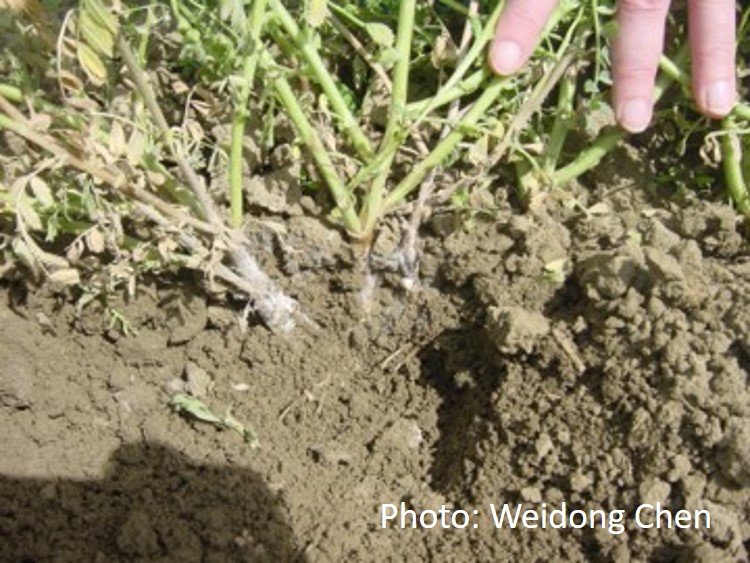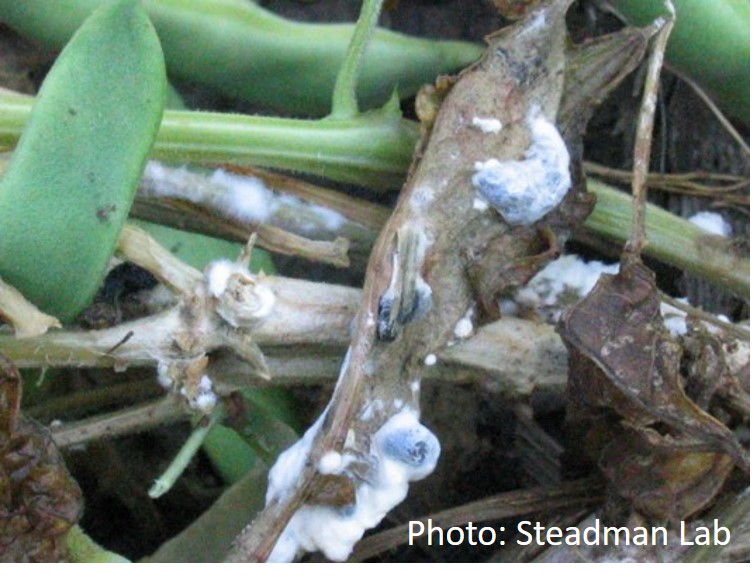| National Sclerotinia Initiative |

|
The National Sclerotinia Initiative (NSI), administered through the USDA, Agricultural Research Service, Edward T. Schafer Agricultural Research Center in Fargo, ND, was inaugurated in fiscal year 2002. The goal of the Initiative is to use cooperative research to provide solutions to the debilitating effects of white mold disease on seven important crops: sunflower, soybean, dry beans, dry peas, lentils, and chickpeas.


The NSI is working to understand and combat white mold diseases, caused by the fungal pathogen, Sclerotinia sclerotiorum. Efforts include plant breeding activities to develop disease resistant cultivars, identification of genes conferring resistance traits, improved production practices to manage disease incidence, and new knowledge of the pathogen to control its disease intensity.
The Initiative is guided by a Steering Committee that includes commodity group and ARS representatives. A comprehensive research plan has been drawn from a Strategic Plan developed by commodity group partners and scientists involved in white mold research. Each fiscal year, the USDA-ARS considers multi-year plans of work that can most effectively employ the funds appropriated by the U.S. Congress for collaborative Sclerotinia sclerotiorum research. Funds for approved research plans are allocated to cooperators annually.
Plans of work are accepted for research pertaining to any/all of the following research areas: 1) Germplasm Resources & Translational Genomics, 2) Pathogen Biology & Mechanisms of Resistance, or 3) Disease Management & Crop Production. Research proposals are reviewed by an independent Scientific Review Panel and by research committees from each participating commodity organization. Funding recommendations are decided in consultation with members of the NSI Steering Committee.
Contact Us:
Lanie Bilodeau, Center Director
lanie.bilodeau@usda.gov
Annette Fischer, Center Director Secretary
annette.fischer@usda.gov
